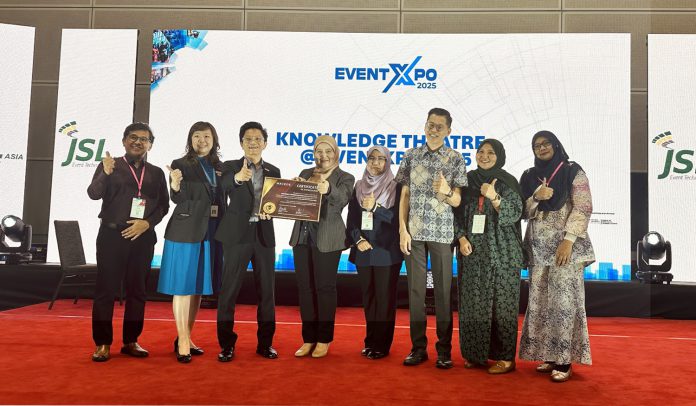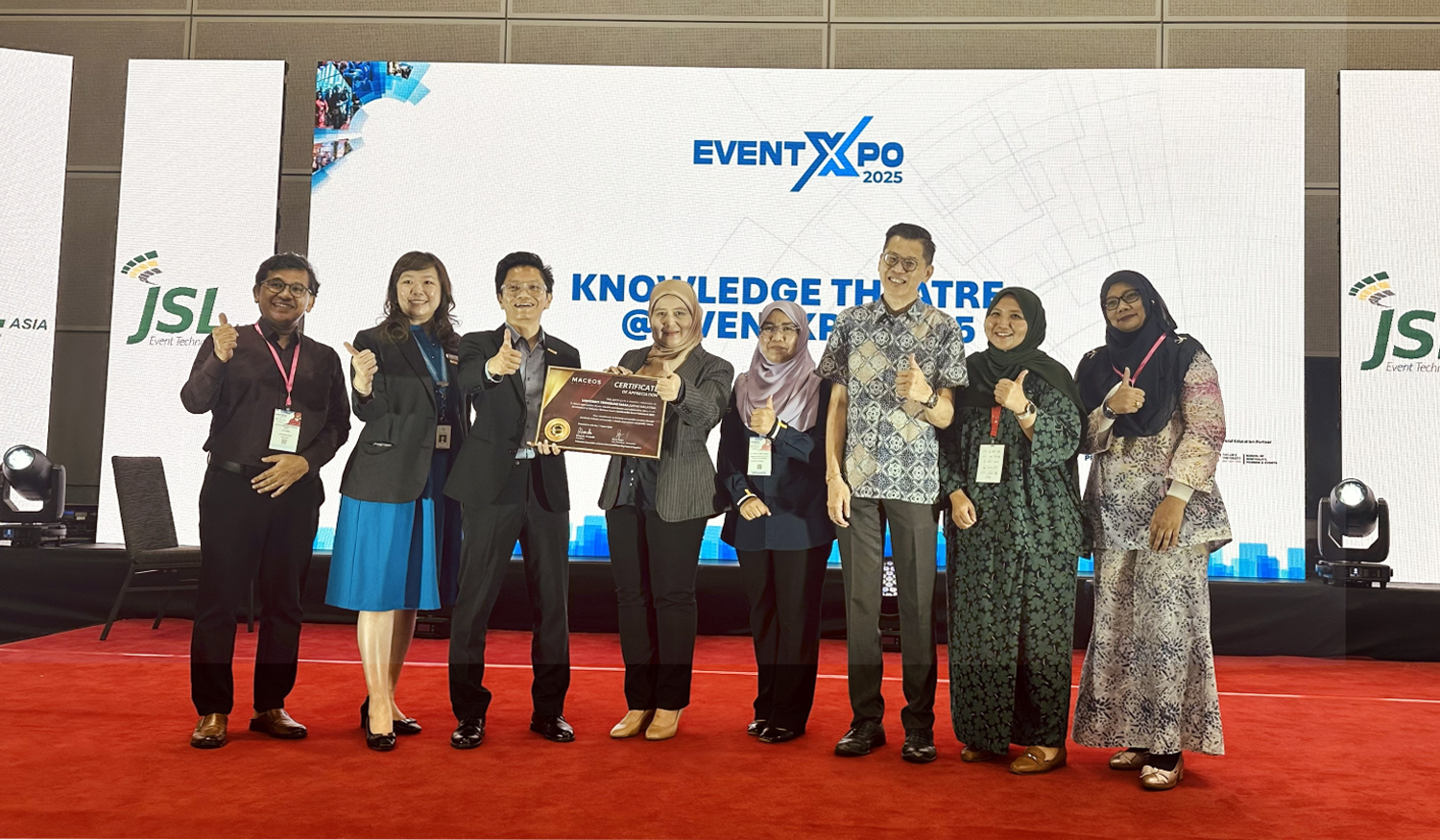
The Malaysian Association of Convention & Exhibition Organisers & Suppliers (MACEOS) and Universiti Teknologi MARA (UiTM) have jointly launched the Sustainability Event Framework (SEF).
The launch of the framework on August 7 took place during the second annual EventXpo 2025, which was organised by MACEOS and held at the Kuala Lumpur Convention Centre.

The SEF identifies eight core sustainability categories deemed essential for any event: F&B, Waste, Products and Materials, Energy, Freight and Logistics, Accommodation, Digital and Communications, and Travel to and from the event destination.
Yusno Yunos, vice president – innovation at MACEOS indicated that “these categories were selected because they represent the most common sources of environmental impact across different types of events”.
The framework provides actionable examples across several categories. For instance, F&B practices include sourcing local produce and minimising single-use plastics, while Waste management focuses on clear recycling and composting. In terms of Products and Materials, the emphasis is on sustainable sourcing and renting over buying.
Organisers are also encouraged to use energy-efficient lighting for Energy and to consolidate shipments for Freight and Logistics. The framework also promotes partnering with green hotels for Accommodation, using paperless communication for Digital and Communications, and encouraging public transport and local participation for Travel.
Yusno added: “These real-world examples not only guide organisers in taking meaningful action but also provide a consistent measurement standard for evaluation and improvement.”
The SEF Assessment Matrix further structures these categories into two levels.
The first level focuses on four entry-level categories – F&B, Waste, Products and Materials, and Energy. Events scoring between 10 to 20 points in these areas will receive the Certified Sustainable Event recognition.
The second level incorporates the other four additional operational categories – Freight and Logistics, Accommodation, Digital and Communications, and Travel. This is assessed using a tiered certification system, providing a transparent and structured pathway for organisers to progressively elevate their sustainability performance.




















